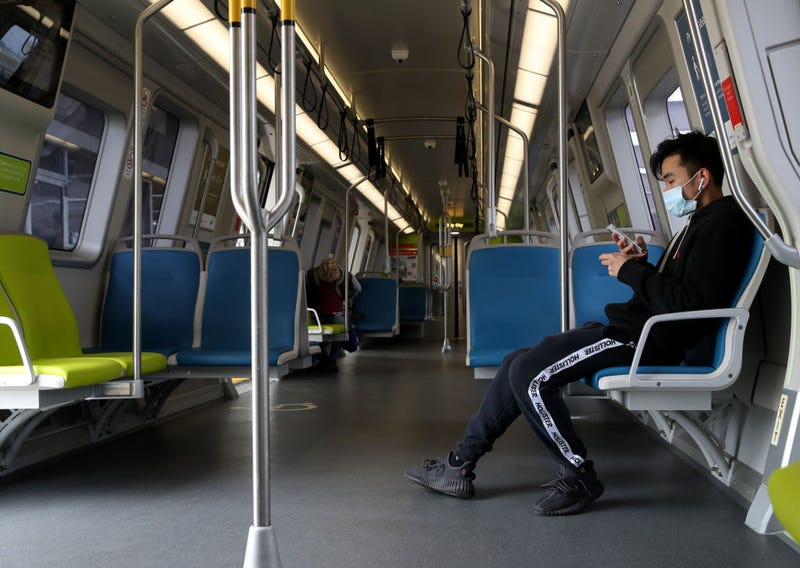
SAN FRANCISCO (KCBS RADIO) – New metrics estimate that about 90% of Californians live in counties for which the CDC would recommend universal indoor masking because of the high levels of COVID-19 within the community.
For more, stream KCBS Radio now.
This comes just as the masking mandate expired for the Bay Area's major public transit system on Monday, despite many commuters thinking it's too soon. "You can't social distance in most situations and you're going to have relatively long exposure to people, you don't really know what their activities have been and if they're vaccinated or not," said Dr. Dean Blumberg, Professor and Chief of Pediatric Infectious Diseases at UC Davis Health on KCBS Radio's "Ask an Expert" with Bret Burkhart and Melissa Culross.
"I would really recommend masking," he said. "And if you really want to stay protected then get an N-95 mask."
But masking mandates have been relaxed or have been done away with altogether in recent months, just as COVID-19 cases have surged across California, leading some places like Los Angeles to reconsider bringing masking back.
"At this time in the pandemic there are abundant supplies for people to be able to protect themselves," he said. "There's robust vaccine availability, people can make sure they're totally up to date with all vaccine doses including boosters."
And there are also plenty of masks, N-95 or not, available to help people protect themselves.
While it is better for the majority of people to keep masking, it's unclear if bringing back mandates would be feasible, as pandemic fatigue plagues many people. "People really can take responsibility for their own actions and their own risk," said Blumberg.
"Ideally everybody would be masking and be vaccinated and be up to date, but ideally everybody on the freeway would be wearing a seatbelt and driving the speed limit also," he said.
While the responsibility is more on the individual at this point, the benefit of wearing a mask has been well-documented.
Masking just with a regular surgical mask can diminish people's risk of infection by up to 50%, and those who mask with an N-95 can reduce their risk by more than 80%, regardless of if other people are masked or not, according to Blumberg.
The level of protection awarded by a cloth mask is harder to measure because they aren’t standardized.
DOWNLOAD the Audacy App
SIGN UP and follow KCBS Radio
Facebook | Twitter | Instagram

